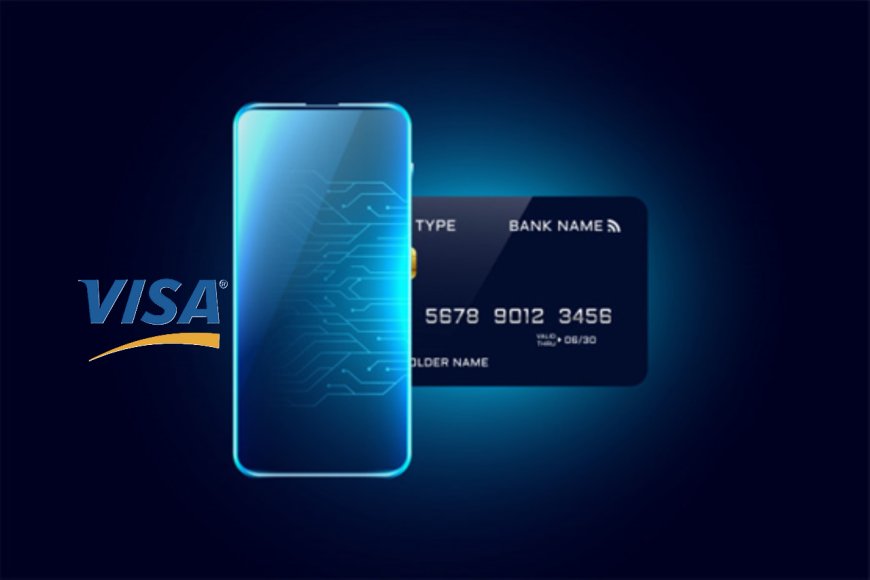Bangladesh Sees Surge in Digital Spending, Contactless Payments Gain Momentum


A recent analysis conducted by Visa, a global leader in digital payment services, has revealed a significant rise in digital payments in Bangladesh from 2023 to 2024. The increase has been driven by the growing adoption of online and contactless payments. The trend has been observed both in domestic and international transactions, highlighting a shift in consumer behavior.
Compared to 2023, overall spending in 2024 has increased by 14%, while transaction volume has risen by 17%. The use of credit and debit cards has seen remarkable growth, primarily due to the expansion of online payments. Although in-store card payments have also increased, online transactions have experienced significant growth. The e-commerce sector has emerged as the leading segment for consumer spending within the country. Furthermore, the use of credit and debit cards among customers has steadily risen. In terms of international transactions, both in-store physical payments and cross-border online shopping have shown substantial growth.
Regarding these developments, Sabbir Ahmed, Country Manager for Visa Bangladesh, Nepal, and Bhutan, stated, “Our latest trend analysis shows that people in Bangladesh are embracing digital and contactless payment solutions. Whether it is credit and debit cards, online payments, or in-store transactions, the trend is evident across domestic and international markets. Through our skilled Visa Consulting and Analytics team, we are enabling safe digital payments for Bangladeshi consumers, businesses, and merchants. At Visa, our goal is to become the preferred payment solution while ensuring world-class security and strengthening the country’s digital landscape.”
In addition to consumer spending, the analysis indicates that businesses have also increasingly adopted digital payments, with card-based expenditures rising by 50%. Notably, business credit card spending and transaction volume have surged by over 135%, signaling the expansion of Bangladesh’s digital economy.
The popularity of ‘Tap to Pay’ or contactless payments has witnessed a sharp rise. In 2023, its adoption stood at 6%, which has doubled to 13% in 2024. Domestic contactless transactions have tripled, primarily due to the increased use of contactless credit and debit cards.
Almost half of the country’s spending has been facilitated through digital wallet top-ups. Other key sectors where consumers have spent the most include travel, discount stores, pharmacies, and healthcare services. In contrast, cross-border payments have been prevalent in areas such as education, business-to-business (B2B) transactions, food and grocery purchases, and government services.
Visa’s cross-border spending analysis indicates that 90% of Bangladesh’s international expenditures have taken place in 20 countries, with the top five being India, the United States, the United Kingdom, Thailand, and the United Arab Emirates. These five nations account for more than half of Bangladesh’s cross-border spending. Over the past year, Bangladeshi consumers have spent the most on in-store purchases in India, Thailand, the United States, the UAE, and Singapore.
While India remains the leading destination for cross-border spending, there has been a 10% decline in card-based expenditures in the country. On the other hand, spending in Thailand has increased by over 20%, mainly driven by medical tourism. Bangladeshi consumers have spent 25% more on healthcare and over 35% more in pharmacies in Thailand. Other significant destinations for cross-border spending include Malaysia, mainland China, and Vietnam.
Domestically, most digital transactions have been recorded in Dhaka. The capital accounted for 75% of total expenditures and 80% of all transactions in the past year. In 2024, spending in Dhaka grew by 20%, with 60% of consumers preferring online payments. Additionally, cities like Gazipur, Rajshahi, Rangpur, and Mymensingh have also seen a rise in digital payment adoption.
এ. এইচ. এম. বজলুর রহমান ৩০ আগষ্ট, ২০২৫
শেখ শাহরুখ ফারহান ২৩ আগষ্ট, ২০২৫
আরিফ মঈনুদ্দীন ১৮ আগষ্ট, ২০২৫
আন্তর্জাতিক ডেস্ক ১১ সেপ্টেম্বর, ২০২৫
আন্তর্জাতিক ডেস্ক ১০ সেপ্টেম্বর, ২০২৫
আন্তর্জাতিক ডেস্ক ১০ সেপ্টেম্বর, ২০২৫
আন্তর্জাতিক ডেস্ক ১০ সেপ্টেম্বর, ২০২৫
আন্তর্জাতিক ডেস্ক ১০ সেপ্টেম্বর, ২০২৫
Total Vote: 46
যৌক্তিক
Total Vote: 52
একমত




